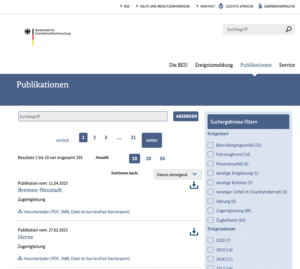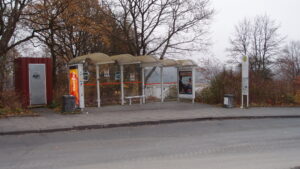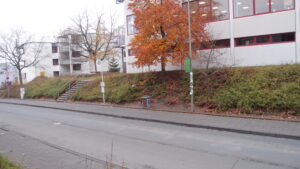A04 - Normal Interruptions of Service. Structure and Change of Public Infrastructures
Associate Member:
„The project explores whether media representations normalize technical disruptions in rail and road traffic in favour of the road and thus to the detriment of the climate. It develops a praxeologically inspired proposal to document contemporary mobility crises in their multiple realities.“
Executive summary
Disruption and normalization share a remarkably stable relationship (Wynne 1988; Potthast 2021a). At the same time, the patterns of a normalizing management of technical malfunctions, e.g. with regard to its temporal structure, are quite diverse. In order to embed the rather microanalytical findings of the first and second term into a macrohistorical context of discussion, the third term of the subproject ties in with research on “large technical systems” (LTS). Reference is frequently made to this research in order to draw attention to the irreducibly socio-technical character of infrastructural services provided. However, a fundamental historiographical ambition inherent to this research approach is neglected: The development of infrastructures can be attributed in an essential way to a dynamic interplay of “size” and “systemicity.” By examining the role played by patterns of normalization in this context, this comparative study seeks to help shed light on the question of why a shift of traffic from road to rail has so stubbornly failed to materialize. For comparative purposes, therefore, the project’s focus on public transport is expanded to include private motorized transport. Can a comparative evaluation provide new insights into why a modal split that is less harmful to the climate has so persistently failed to occur? How do patterns of normalization contribute to this inertia?
Historically and territorially limited to Germany between 1990 and 2023, the subproject will pursue the thesis that, in the development of rail transport, a dominant way of managing disruptions has prevailed, and this has led primarily to a systemic upward transformation. In contrast, a variable way of managing disruptions can be identified in the development of road transport that is, for the most part, advantageous to its large scale (momentum), but does not translate into a systemic increase in self-reflection. To substantiate this thesis, the subproject reconstructs how the daily press reports on mobility crises during the period mentioned above. A mobility crisis is defined as a situation in which two or more of the following mobility practices clash together: changes of residence (chosen, forced), long-distance travel (work-related, tourism), everyday work-related mobility (commuting), everyday leisure and supply mobility. The decisive factor for this analysis is how patterns of normalization take effect in relation to the relevant threads.
This subproject works out a comparative case study of the development of LTS and offers a proposal for a praxeological reorientation of LTS research by way of considering the multiplicity of disruptions and the patterns of their normalization. In the scope of the SFB, it develops a historically contoured contribution to the question of the scalability of cooperation and, through the praxeological perspective on LTS research, provides new stimuli for controversy analysis. The recategorization of mobility crises has to assert itself against an established routine (cost-benefit analysis) and prove itself practically in the course of a progressively validated report format (for disruptions and their normalization).
Potthast, J. 2021. “Innovation und Katastrophe”. In Handbuch Innovationsforschung, edited by B.Blättel-Mink, I. Schulz-Schaeffer und A. Windeler, 363-380. Wiesbaden: Springer VS.
Wynne, B. 1988. “Unruly technology: Practical rules, impractical discourses and public understanding”. Social Studies of Science 18 (1): 147-167.
As a result of the Russian war of aggression Large-scale technical systems (LTS ) have forcefully returned to the political and media agenda. With a simultaneously more comparative and consistently praxeological orientation, the project intervenes in the interdisciplinary research context named after LTS, based on findings on the distributed handling of disruptions (2016-2023).
- The project investigates how (long) interruptions to rail and road traffic strain the feeling of normality.
- It develops a reporting format for multiple disruptions across all modes of transport.
- Based on a regional mobility crisis, it will be examined whether this reporting format proves itself as a medium of cooperation.

(© Bundesstelle für Eisenbahnunfalluntersuchung)
The project works with a variety of methods:
- It compiles threads from a large number of malfunction reports and subjects them to a sequential and actantial comparative analysis.
- It subjects the existing report formats to a praxeological review.
- It is testing this report format as part of the documentation of a regional mobility crisis.
| 9-Euro-Ticket überlastet hunderte Züge | 07.06.2022 | dpa u.a. |
| Auf dem Land ist das 9-Euro-Ticket eher unbeliebt | 10.06.2022 | dpa u.a. |
| Ein Nachfolger für das 9-Euro-Ticket | 12.06.2022 | Dyrk Scherff |
| 9-Euro-Ticket ist ein Erfolg | 14.06.2022 | AFP |
| Verlängerung des 9-Euro-Tickets ausgeschlossen | 23.06.2022 | Rahel Gloub |
| 21 Millionen 9-Euro-Tickets im Juni verkauft | 30.06.2022 | dpa |
| So begehrt ist das 9-Euro-Ticket | 07.07.2022 | Reuters |
| 9-Euro-Ticket sorgt für leere Sitzplätze in den Flixbussen | 08.07.2022 | Henning Peitsmeier |
| Was nach dem 9-Euro-Ticket kommt | 12.07.2022 | Corinna Budras |
| „Das 9-Euro-Ticket macht krank“ | 16.07.2022 | Sebastian Reuter u.a. |
| 9-Euro-Ticket als Testfahrkarte | 19.07.2022 | Ralf Euler |
Three focal points characterize the progress of the investigation:
- A process analysis provides information on how disruptions are normalized as a media event - and how differences in size and system architecture between rail and road traffic are consolidated.
- Gegenläufig dazu erfolgt eine Forminvestition in ein beide Verkehrsträger übergreifendes Berichtsformat.
- The extent to which the revised reporting format provides information about interlinked mobility crises is finally reflected in the course of a location-sensitive investigation.

Bus stops at the AR Campus, University of Siegen. (© Jörg Potthast 2017, cf. Potthast 2019, Fehlermeldungen, p.227)

➔ Find the Project Archive 2020–2023 here
Publications
Current
Public transport disruptions are nerve-wracking. But where do you complain when the train is cancelled? To the staff on the spot or directly to the company? An ethnographic look at the disruption management of public transport companies shows: Neither strategy is helpful on its own. Drawing on research on accountability and technical infrastructures, the organizational ethnographic study traces how questions of accountability are technically mediated and shifted back and forth between different actors. This "distributed accountability" cannot be located in single individuals, but is found in the interplay of different actors, in the processes and practices of incident management.

Tobias Röhl, 2022. Verteilte Zurechenbarkeit. Die Bearbeitung von Störungen im Öffentlichen Verkehr. Frankfurt; New York: Campus. ISBN: 9783593515298. https://www.campus.de/buecher-campus-verlag/wissenschaft/soziologie/verteilte_zurechenbarkeit-17097.html.
FAZ Interview von Uwe Ebbinghaus mit Tobias Röhl (01.08.2022) "Wir bitten, dies zu entschuldigen..."
zum Artikel
WDR 5 Interview von Thomas Koch mit Tobias Röhl (29.08.2022) "Die Entschuldigungen der Deutschen Bahn"
zum Beitrag


